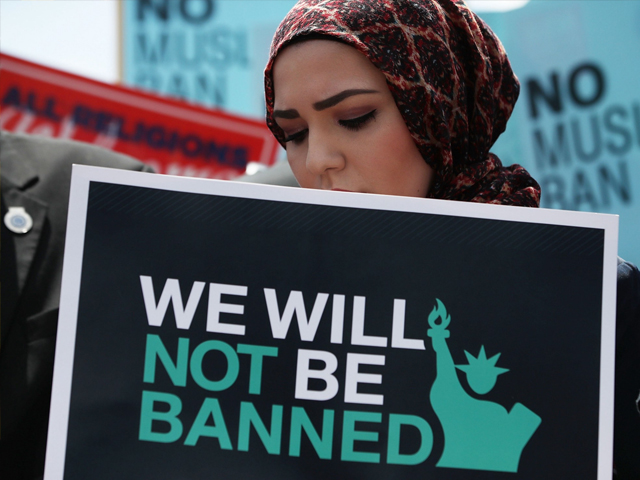
Undoing religious intolerance - undoing the second amendment
The seeds of religious extremism and intolerance that were sown in 1974 have grown into a robust tree.
Religious clerics in Pakistan celebrate September 7th as a day of victory for Islam and Pakistan. Officially dubbed the “Khatme Nubuwwat Day” or “Finality of Prophethood Day,” many mosques come alive with celebrations this day, sweets are distributed and intense speeches are made in large religious gatherings.
Forty years ago this day, Pakistan passed the second amendment to its Constitution, forcibly declaring the Ahmadis non-Muslim. With the stroke of a pen, the Ahmadis had been snatched of their basic right to self-identity at the insistence of the very clerics who had opposed Jinnah in his rightful struggle. It was this day that Pakistan started drifting away from the vision of its valiant founder.
What had Ahmadis done to deserve this State-sanctioned discrimination?
It is no secret that Ahmadis played a very prominent role in the creation of Pakistan and its subsequent growth. The community supported Jinnah in his fight for the rights of the minority Muslims in United India. It was an Ahmadi Imam who convinced Jinnah to return to India, after Jinnah bid farewell to Indian politics and moved to London. It was an Ahmadi, Sir Zafarullah Khan, who drafted the famous Pakistan Resolution that became the documentary basis for the demand for Pakistan. Jinnah appointed him the country’s first foreign minister. Sir Zafarullah Khan fought the Kashmir issue at the United Nations and pioneered the legal battle for a free Palestine. His efforts directly led to the independence of many Arab and North African States.
However, his career was cut short when he was forced to resign by the anti-Ahmadi Movement spearheaded by Abul Ala Maududi. The country’s only Nobel Laureate, Dr Abdus Salam, also belonged to the Ahmadiyya Community. When he planned to give a lecture on his Nobel-prize winning theory at the Quaid-e-Azam University in Islamabad, Islami Jamiat Talaba activists threatened to break his legs. His trip had to be cancelled.
Another prominent Ahmadi, Mirza Muzaffar Ahmad, who was the Federal Finance Minister under Ayub Khan and Yahya Khan, played key role in the economic development of Pakistan in the 1960s and 70s. His efforts led directly to the success of the Mangla and Tarbela dam projects. He, too, had to leave Pakistan after a near-fatal attempt at his life by his peon. Jamaat-e-Islami and other anti-Ahmadis later honoured the peon with the title of ‘Hadhrat Maulana’.
Ahmadi Muslims were also at the forefront in defending Pakistan in times of war; General Akhtar Malik, General Abdul Ali Malik are a few names that come to mind. In fact, the only Pakistani general to have ever laid his life during combat was an Ahmadi, General Iftikhar Janjua.
The patriotic and peaceful Ahmadiyya community was already facing hate and marginalisation in society at the hands of extremist clerics. But the passage of the second amendment was the first time the State decided to give credence to this growing bigotry. Two decades prior, when similar anti-Ahmadi agitations took place in the Punjab, the government was quick to quell the riots. Maulana Maududi was handed the death penalty – later dropped – for his role in the riots and for his vitriolic hate speech against the Ahmadis.
The second amendment was an unprecedented move in the recent history of the modern world. With its passage, Pakistan had become the first State – and remains the only one – to decide the faith of its citizens. This discriminatory amendment resulted in further restrictions on religious freedom with Zia’s promulgation of the anti-Ahmadi laws shortly after in 1984. Known as the Ordinance XX, these laws criminalised the daily lives of Ahmadis and imposed a three year jail term for those caught ‘posing as Muslims’. Under these laws, thousands of Ahmadis have been jailed for ‘crimes’ such as praying, saying the salam, saying the Kalima, reading the Quran etcetera.
Emboldened by their success against the Ahmadis, some Sunni extremists tried to have the Shias declared infidel in the 1980s. Maulana Azam Tariq was scheduled to present his case when it had to be dropped due to Iranian influence. Today, the anti-Shia movement acts with impunity in Pakistan and even a certain section of Sunnis have come under attack for their ‘heretic’ customs and beliefs.
The seeds of religious extremism and intolerance that were sown in 1974 have grown into a robust tree. Ever since, Pakistan is burning in the fire of sectarian violence. Religious bigotry has become main-stream. To reverse this growing trend of sectarian violence and bloodshed, we must go back and undo the root cause - the second amendment.
Future generations will remember September 7 as a black day in the history of our nation – the day when Jinnah’s Pakistan died and control was handed over to the fundamentalists. And it is no wonder that they celebrate this day as a day of victory. It was victory only for intolerance and bigotry, for sectarianism and religious violence. It is certainly no victory for Pakistan and human rights, and definitely not for the pluralism and tolerance taught by Islam.
[poll id="360"]




COMMENTS (114)
Comments are moderated and generally will be posted if they are on-topic and not abusive.
For more information, please see our Comments FAQ